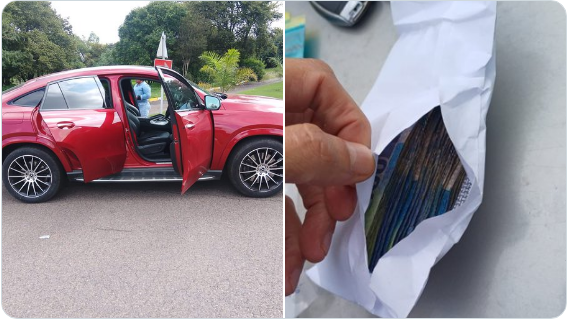Two senior officials from the Emalahleni Local Municipality in Mpumalanga were arrested on corruption charges this week, marking another high-profile case in South Africa’s ongoing fight against graft. The arrests, made by the Middelburg Serious Corruption Unit on 16 April 2025, followed an investigation into alleged bribery linked to a lease agreement extension.
The suspects, both Members of the Mayoral Committee (MMCs) aged 54 and 55, stand accused of demanding R500,000 in bribes from an undisclosed party. Investigators revealed that R20,000 had just changed hands when authorities moved in, adding to an earlier R40,000 payment made in February. The latest cash payment, divided equally between the two officials, was immediately confiscated as evidence.
[TWO EMALAHLENI MMCs TO SPEND A COLD NIGHT BEHIND BARS]
Two Members of the Mayoral Committee in Emalahleni Local Municipality will spend a night behind bars after they were arrested for corruption.
The two councillors aged 54 and 55 were arrested at Witbank dam by the… pic.twitter.com/KH4MsJkK0V
— South African Justice, Crime Prevention & Security (@RSA_JCPS) April 16, 2025
Authorities also impounded two luxury vehicles believed connected to the crime. The seizure of these high-end cars has drawn particular public attention, highlighting the stark contrast between the officials’ alleged illicit gains and their public service roles.
The case comes at a sensitive time for local governance in South Africa, where corruption scandals have repeatedly undermined trust in municipal administrations. Emalahleni, as a strategic economic hub in Mpumalanga, has faced particular scrutiny over governance issues in recent years.
The arrested officials are scheduled to appear in the Emalahleni Magistrate’s Court today, where prosecutors will present their case. Legal experts suggest the recovered cash and vehicle seizures could prove crucial evidence in what appears to be a carefully documented sting operation.
This arrest follows growing public frustration over corruption at local government levels, where service delivery failures often coincide with allegations of financial mismanagement. While anti-corruption campaigners have welcomed the arrests as a positive step, questions remain about systemic vulnerabilities that enable such alleged misconduct.
The case also reignites debate about accountability mechanisms for public officials. Some governance experts argue that without stronger preventative measures and quicker disciplinary processes, anti-corruption efforts will remain reactive rather than transformative.
As the legal process unfolds, many citizens will be watching whether this case represents a genuine turning point or simply another isolated incident in South Africa’s complex battle against corruption. The outcome could influence both public confidence and the strategies of law enforcement agencies tackling graft at municipal levels across the country.






















